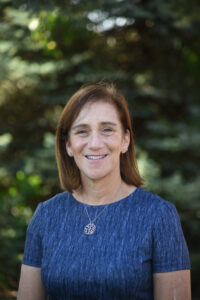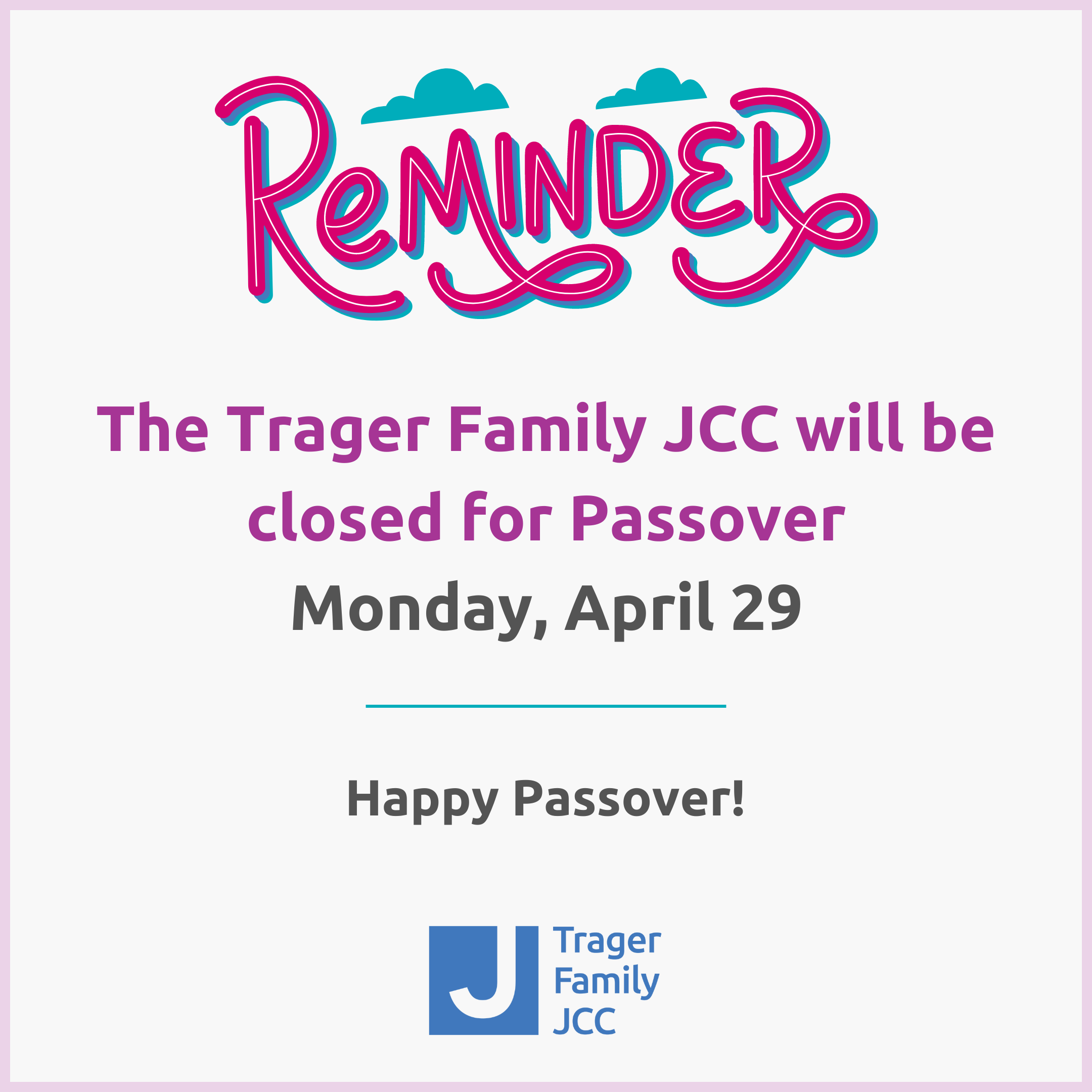By Andrew Adler
Community Editor
Sara Klein Wagner — President & CEO of the Jewish Federation of Louisville and the Trager Family JCC and responsible for Camp J, this Community Paper, and a membership of more than 10,000 people — sat down recently with me to talk about what “Jewish pride” means to her. Below are excerpts from that conversation, edited for length and clarity.
Andrew: Sara, what does “Jewish Pride” mean to you?
Sara: I think most people, Jews and non-Jews alike, feel proud of where they came from and their family story and history. That history becomes innate in you — it is your story and becomes part of what you do, and how you choose to live your life. For me, Jewish pride is wrapped up in Jewish memories: individual and collective stories and history, and how we embrace those memories to move forward through action. Jewish pride is also how energetic we feel about our shared future.
Andrew: It’s truly an expression of L’Dor V’dor – from one generation to the next.
Sara: Let me give you a tiny part of my history. I remember how I felt being with my grandmother, Bessie, and her unique pronunciations of Jewish words, including challie and sukkie. I remember her teaching me to say the Shema before going to sleep, and I can feel the warmth of being in my childhood home sharing Friday night dinners with my mom and dad. It’s sitting with three generations of my family, in the same row we always sat in shul every Shabbat, and my grandmother getting looks from the rabbi when she was talking too loudly to her sister. I carry those experiences with me in everything I do.
Andrew: There’s also a communal to Jewish pride, right? And that pride can be an engine for real purpose.
Sara: When you consider our deeper Jewish pride, I try to remember that we, as Jewish people, don’t have to do this. We don’t have to maintain our connections with our past either individually or collectively. But after thousands of years of communal purpose building together as a people, we know it makes our lives better and makes other people’s lives better. There’s something special in realizing how you’re connected to something bigger than yourself, and that it’s important for us to take care of one another and continue building together.
Andrew: Indeed, at this very moment we’re in a building where those connections are made every day – where everyone is welcome.
Sara: It’s not complicated. We want to help all children thrive, so we offer camps and preschools and support community education programs, and we reach a lot of people in our Jewish community. You know, we absolutely have to understand there are barriers to community and why it’s difficult for those who don’t see themselves as belonging. Perhaps they don’t perceive that the doors are truly open for them. Maybe they don’t know what they’re looking for. We try to open those doors and erase those barriers every day. That’s where the real challenges are, and the real reward, too.
Andrew: Do you think that your foundational Jewish pride made it almost inevitable you’d rise to a place like the Federation and the Trager Family JCC?
Sara: A hundred percent, yes. I like to think of myself as someone who connects things from one point to the other and has a genuine curiosity about how communities thrive. At the University of Wisconsin, I earned a bachelor’s degree in sociology after sampling several other majors, because I became fascinated when I observed communities coming together. I wanted to understand how they supported each other, who determined what’s right or wrong. That fascinated me, and still does. So, I was intrigued by the dynamics of group organization before I even knew I’d be heading in that direction. And it’s what I feel I’m still doing now.
Most importantly, growing up in Jewish Louisville is why I work in this field. Like so many others, I was given the gift of being part of something special which included life-long friendships, mentors and a sense of belonging to a community that also had immense pride. That is what makes every day that much more special as I see professionals, volunteers and supporters working their hardest to serve an ever-changing demographic. I want to say that again: Every day I have the privilege of helping make our community better, whether it’s brick by brick, or more importantly, person to person. Those connections really make all of us thrive.
Andrew: Final question: If you had to identify a personal, defining Jewish experience, what would it be?
Sara: It’s impossible to pick one, we all refine our Jewish identity every day. But one of my proudest moments working in Jewish Louisville was taking a group of teens on the March of the Living in 1992 and being present for 17 and 18-year-olds experiencing the pain of the Holocaust in Poland and then the beauty of the Jewish experience in Israel, and watching these teens accept the responsibility of being witnesses to the horror and most importantly returning home to become teachers. Every teen I traveled with in ’92 and worked with in subsequent years came back changed, with an irrevocable commitment to telling the stories and teaching the lessons of the past to prevent more tragedy in the future.
And at a higher level, every teen had the opportunity to go on the March of the Living because another Jewish person and our community decided to invest in them and invest in that teen’s future. For me, it was participating in “generation to generation” in real time and in technicolor.





